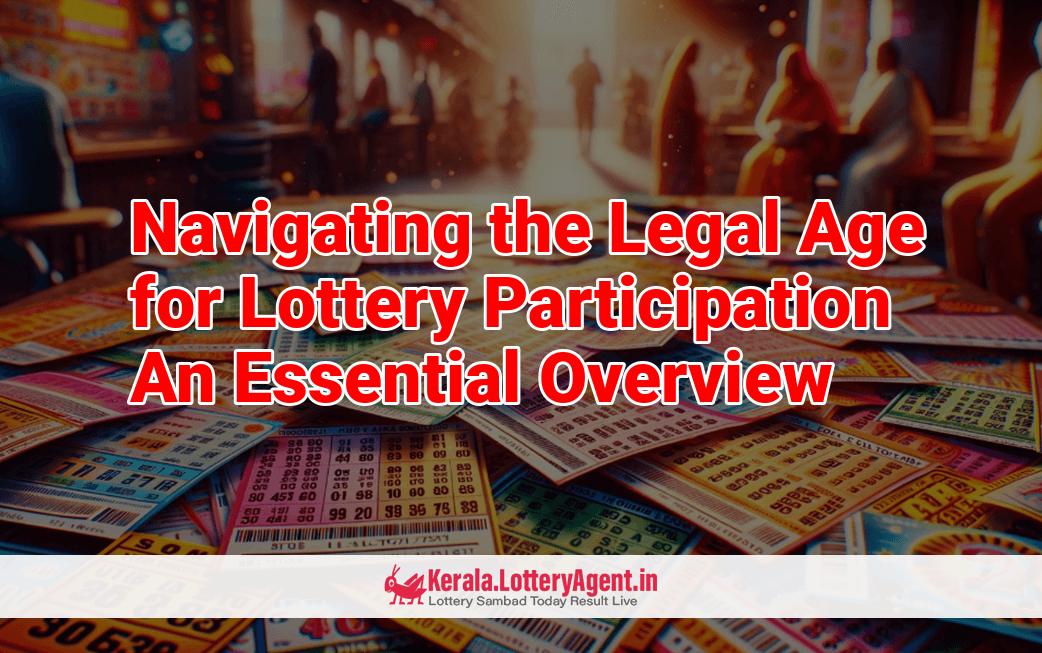
The thrill of a lottery draw, with its promise of life-changing fortunes, extends an open invitation to dreamers seeking their shot at immense wealth. But before one can embark on this quest for the jackpot, there are essential prerequisites to fulfill—the forefront being age eligibility. Understanding who is legally entitled to participate in this form of gambling is crucial, thereby preserving the integrity of the lottery system and ensuring player protection.
Age Limits for Lottery Players
The age at which individuals can legally acquire a lottery ticket isn’t a universal standard; it varies across jurisdictions. In the vast majority of the United States, the legal threshold is set at 18 years. Nevertheless, there are exceptions. States such as Arizona, Iowa, and Louisiana have raised the bar to 21 years, with Nebraska settling at 19 years. This patchwork of laws underscores the importance of local legislation in determining how the lottery is regulated, including age requirements.
Why Impose Age Restrictions?
Lawmakers have instituted age restrictions as a safeguard against the risks associated with gambling, particularly for the young and impressionable. Research has highlighted the likelihood of increased addiction and financial irresponsibility with early exposure to gambling activities. By setting a minimum age, authorities aim to delay participation until an individual has reached a maturity level sufficient for understanding the implications of gambling, while also curbing the exploitation of youth by unscrupulous lottery operators.
Legal and Financial Consequences of Non-Compliance
The ramifications of flouting these age requirements are not to be taken lightly. Those attempting to purchase a lottery ticket underage, or those selling to minors, can face punitive actions including fines, compulsory community service, and possible criminal charges. Retailers are mandated to verify a buyer’s age through valid identification documents. A failure to uphold this duty can result in Class A misdemeanor charges for the seller, carrying significant fines or even imprisonment.
Protecting the Youth from Gambling Harms
Paradoxically, while the allure of a lottery win is strong, it can spell disaster for underage individuals lacking fiscal wisdom. Their vulnerability to impulsive buying and inadequate financial decision-making can lead to substantial monetary losses, and in some unfortunate cases, a spiral into gambling addiction. This risk is compounded by the stark reality that even if a minor were to win, they cannot legally claim their prize—a bitter pill to swallow for someone who might have chanced upon a winning ticket.
Global Perspectives on Lottery Age Restrictions
Beyond the borders of the United States, the world presents its own tapestry of age-related regulations. It is a global consensus that responsible gambling necessitates age verification, with each country determining its statutory limits. For avid lottery participants or those curious to venture into international lotteries, understanding these international laws is as critical as it is within one’s home country.
Staying Within the Legal Boundaries
To avoid inadvertently stepping onto the wrong side of the law, prospective lottery players must familiarize themselves with the age restrictions within their state of residence. As the lottery sphere evolves, including the expanding domain of online lotteries, such awareness becomes ever more vital. It is the bedrock upon which the enjoyment of this entertainment rests, ensuring that lotteries remain a form of amusement confined to those adequately equipped to engage with them.
Conclusion
In concluding, it is clear that lotteries, while open to the masses, are not a one-size-fits-all proposition. Age restrictions serve a protective function, shielding youth from potential harm and maintaining the ethical conduct of lottery operators. Whether one is looking to dabble in local state lotteries or explore the global lottery landscape, understanding and adhering to these age requirements is paramount. Be informed, play responsibly, and let the games remain a source of joy for eligible participants.











